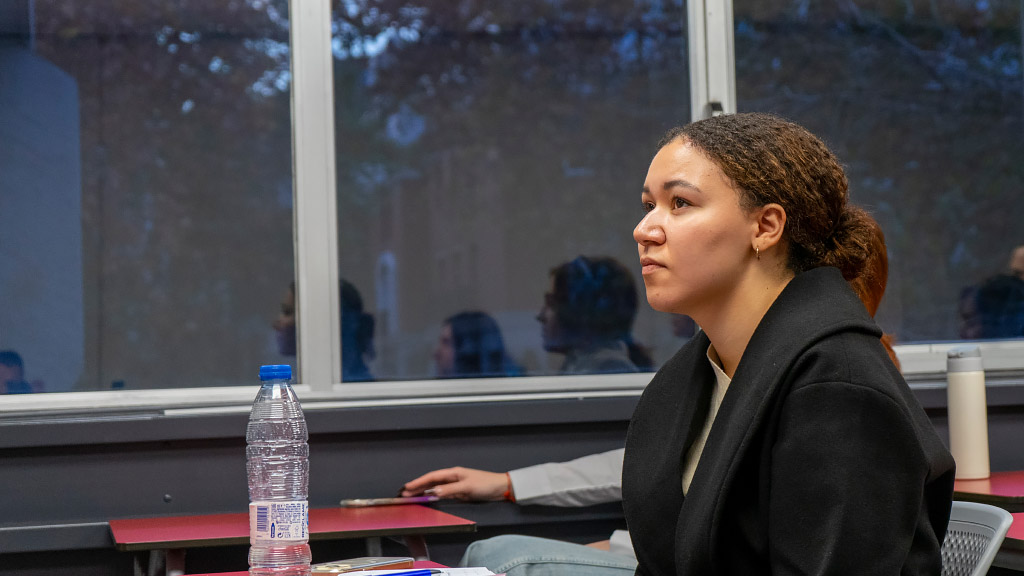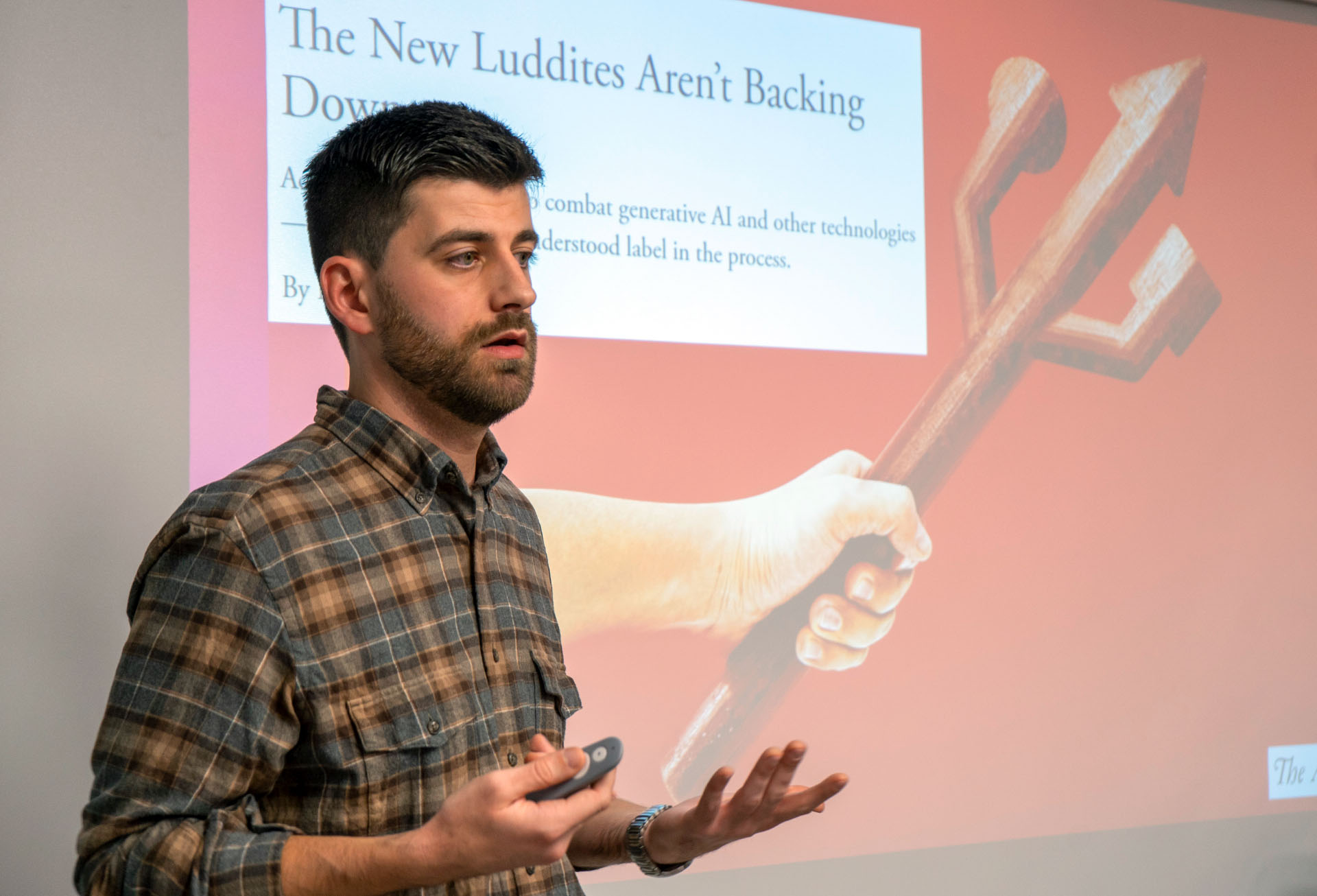Dr. Andrés Porras Chaves
Dr. Andrés Porras Chaves, professor of Humanities and member of the Department of Modern Languages and Literature at CIS University, spoke about literature and digital cultures as part of the lectures scheduled by Global, Imperial & National Affairs (GINA). The lecture focused on how writing and technology interact with each other, demanding new critical approaches and a new approach in which the boundaries between the two disciplines fade away.
Taking as a starting point the story “The Library of Babel” by Jorge Luis Borges, Dr. Porras proposed to review the literary classics with a contemporary perspective to find answers to the problems of our time. In this way, the famous infinite library could be reinterpreted as an allegory of the internet and the expansion of big data, while other Borgesian texts (“Funes the Memorious” and “The Aleph”) were analyzed concerning current debates about algorithms, virtual reality, and the resurgence of Luddism.

Is digital technology changing what we understand by Literature?
The second part of the conference addressed a different question: What exactly constitutes “literature” today, especially considering that 43% of millennials and Generation Z do not identify as readers? The speaker argued that this data points to a terminological problem. Reading habits are changing, and existing definitions of literature need to be revised to include new language-based formats such as audiobooks, graphic novels, song lyrics…
And of course, video games too. Since their origins in the late 1950s, two main types have coexisted: action games and adventure games. Dr. Porras argues that the latter can be considered an interactive form of literature, as they are based on expression through words, from the earliest text adventures to the point-and-click genre popularized in the 1990s. His argument extends to more recent examples, generally labeled as “indie” or “narrative-rich” games, such as The Stanley Parable, The Beginner’s Guide, or Firewatch. Dr. Porras posits that the creator of one of these titles could one day win a Nobel Prize in Literature, sparking debates similar to those generated by Bob Dylan’s award in 2016.
The conference concluded with a broader discussion of so-called electronic literature and its prospects, followed by a question-and-answer session from an attentive audience of students and faculty from CIS University.
The Applied Humanities Research Group GINA will continue to organize its seminar cycle during the spring semester.
